CRM Advertising is quickly becoming the best approach for marketers who aren't just focused on customer acquisition alone, but on customer retention as well. If you've ever fished, you probably understand the amount of sitting, wishing, and waiting involved in the entire process. But you also realize that some strategies can increase your chances of carrying home a few catches. For instance, you know that a larger, more populated pond offers better chances, so you can't waste your time in the wrong pond. Appealing bait is also crucial, so you'll always ensure you cast the reel with a little twitchy snack. If there's no bite after some time, you'll move to a different location to entice new fish or retarget the ones that weren't tempted by your offering the first time around.
This is the exact mentality that marketers should consider when engaging and re-engaging prospects through targeted, CRM-powered ads as they spend time in the digital sea.
This detailed guide offers an overview of CRM advertising, features, and how far the HubSpot ad management tool can reach in terms of generating leads and increasing conversions.
The Value of CRM Advertising
The customer of today has really high expectations of brand experience and personalization, which are fast turning into a battlefield where entrepreneurs fight for customer loyalty. However, one big challenge limits most marketers from delivering to their full potential: personalization at scale.
Most eCommerce entities still invest most of their resources and time in customer acquisition and mass-appeal advertising. Of course, you need some acquisition campaigns, but your marketing must adopt a smarter strategy for the best results.
For your brand to adapt and evolve successfully alongside your target prospects, you must understand that despite the effectiveness of popular traditional, large-scale ad campaigns in the past, scalable and data-driven opportunities to leverage the data about previous customers exist. You can use the information before reaching out to them to offer a more personalized experience.
This is what CRM advertising seeks to achieve.
What Is CRM Advertising?
This is an excellent ad campaign strategy that allows brands to utilize powerful data that already exists within their CRM platforms to establish ultra-targeted, highly personalized experiences for audiences, prospects, and regular shoppers.
The strategy is effective when you connect your marketing platforms with advertising and social networks. It allows your brand to securely route client contacts to the appropriate channels then use automated advertising campaigns to target them.
Effectiveness
But when would the approach be especially effective, and what will the system look like?
Assuming one of your existing key contacts hasn't visited your company website for some time, responded to any of your content, or made a recent purchase – they've basically gone cold, and you aren't sure what the reason for their silence may be yet they've purchased your brand before.
In this case, you can count on CRM advertising to retain the customer. The tool helps you drive them from their social network space to your brand's platform.
When you use Facebook forms, for instance, you can easily run targeted ads that have a high potential of capturing new leads and sending them to your CRM database. Your marketing team will then use the lookalike audience-creation approach to clone your ideal customers who'll show the most receptiveness to your brand message.
The best part of all this is that CRM advertising works and can transform your sales.
Essential Features of CRM Advertising
Of course, a company that's just beginning to lay the foundation for managing their client data will require different CRM features from those of large enterprises. Your specific CRM needs depend on how your business is functioning and scaling.
Still, you'll need to pay attention to the following essential features of winning CRM advertising campaigns for small- or medium-level enterprises:
- Central location for audience data – One of the primary elements for SMEs is to have a centralized location where all customer data is gathered. Establishing a central source of truth simplifies the way you organize client insights and experiences and identify patterns revealing other crucial details like where they reside and the type of messages they enjoy.
- Seamless connectivity to your primary advertising channels – You must tailor your marketing as much as possible to effectively sell your services or products. However, it's harder to convert audience insights into personalized messaging if you're managing their data from a separate location or tool not linked with your marketing channels. The risk of losing data in the shuffle also increases. Therefore, ensure that your CRM solution can gather data and reports from the tools seamlessly.
- Testing, learning, and campaign iteration capabilities – As a growing entity, there's plenty of things to learn in terms of the identity of your audience and their preferences. As such, it would help if you opt for solutions that allow you to review the performance of your marketing channels. The solution must also help you use the insights to tweak your strategy for the best results.
- Tools that facilitate growth – Once you're actively gathering audience data and studying it to learn more about them, you'll want the information to help you identify and talk to your potential customers and boost customer loyalty to your brand. Your CRM advertising tool should help you anticipate your brand's ideal buyer and focus your resources where there's the most value.
Benefits of CRM Powered Ads
Here are the primary benefits of implementing CRM-powered ads in your marketing campaign:
Enhanced Internal Communication
The CRM approach also enables better communication among employees and departments. Sharing client information and audience insights across departments facilitates teamwork and optimization of customer experience. This means employees from different divisions or levels can adequately answer your audience's questions, hence improved customer service.
Improved Customer Satisfaction
CRM systems store secure client data and use this to improve customer service. This ensures all the dealings that involve marketing, servicing, and selling your brand are achieved systematically and in an organized manner. The approach also provides continuous customer feedback to help you improve your products, hence their satisfaction.
Improved Client Retention
CRM software helps boost customer satisfaction, and this means higher retention rates for existing customers. On average, cutting down your customer defection rates by just 5% can grow your profits by 25–95%. Marketing teams can collect data and use it to address any issues and reach out to clients at the appropriate moment, hence repeat purchases.
Optimized Campaigns
CRM software also helps you achieve a more cost-efficient, targeted marketing approach. As you continue understanding your clients' behavior and needs, you'll easily identify the right time to promote your brand and get an edge thanks to marketing automation features. CRM systems also let you segment your audience pool and offer insight on the customer groups with the highest profit potential.
With this knowledge, you can come up with relevant promotions and execute them at the most appropriate time. This kind of marketing resource optimization makes you competitive and increases your revenue potential.
Valuable Insights
You'll always want to know how well your campaigns are doing. With CRM software, you'll have all your client information at a central location; hence, it's easier to review your overall performance. You can pinpoint crucial details such as leads, revenue generated, and the effectiveness of your marketing campaigns. Quality data means you'll come up with practical decisions, and you'll get value from your campaigns.
Getting Started With HubSpot and Other CRM Tools
You first need to have a quality, reliable CRM system in place to build your client base and maintain personalized relationships with the clients you obtain from your audience. Of course, you must take your time and consider your business goals, preferences, and needs before you invest in a specific solution.
This way, you'll make the right choice at the first shot and get the most from your investment. Once you have a checklist of all your considerations, you'll proceed to review the available options while prioritizing the alternatives that satisfy as many considerations as possible.
It would help if you check out some successful CRM advertising examples on the web or speak to a knowledgeable provider for apt guidance on the entire process.
But if you're already settled with HubSpot CRM, then here's a pricing breakdown of the different ad management solutions:
- Free – The free version is only for audience creation and limits you to connecting only two accounts across supported networks with a spend-limit of $1k for 30 days.
- Starter – It has all the offers in the free version but also includes all the available ad varieties. It also has Facebook lookalike Audiences, advanced website audiences, and a pair of contact list audiences. It is synced daily.
- Professional – Offers every available ad type and a spend-limit of $10k for 30 days. It comprises Facebook Lookalike Audiences, advanced website audiences, and a maximum of five contact list audiences. It's also synced every day.
- Enterprise – This offers all the ad varieties alongside a spend-limit of $30k per 30 days. It also includes Facebook Lookalike Audiences, advanced website audiences, and a maximum of 15 contact list audiences. Just like the others, it's synced every day.
The Bottom Line
Across different sectors, consumers usually have myriads of brands to choose from. As such, your brand must provide a unique experience that they can't find in other companies. What's more, your clients have to feel like you understand them and their needs more than anyone else and that your products and services were created specifically for their individual desires, tastes, and preferences.
CRM advertising provides sufficient client data to help your marketing team come up with the ideal experience for your customers. By integrating the tool in your marketing campaign, you'll be sure of more client insights to help you generate leads and drive more conversions.
If you wish to learn more about how you can get the most out of CRM supported advertising, don't hesitate to contact us today so we can schedule a free HubSpot Software demo.




